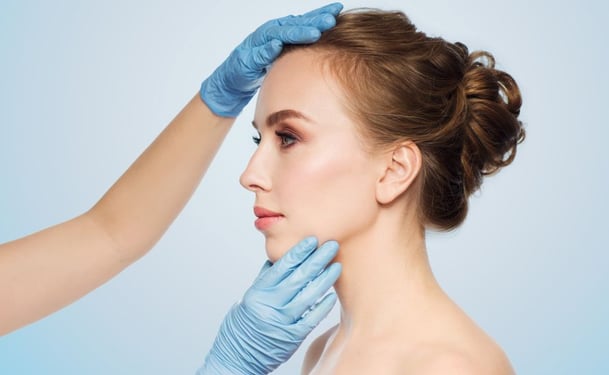Rosacea is a skin condition that doesn’t pose major health risks, but may affect vision and cause skin damage if left untreated. Rosacea is a chronic condition that will evolve if not managed with suitable treatment. The condition is more common in people with fair skin between the ages of 30 and 50, but may also affect people with other skin tones at any age.
A dermatologist should be consulted as soon as the first signs of rosacea occur, as rosacea in developed stages may be difficult to manage, and may also cause permanent damage.
Rosacea Symptoms
Rosacea will manifest through a few early symptoms. While rosacea is only a skin condition and won’t be a health threat, it is always recommended to visit a dermatologist to determine whether the symptoms point indeed to rosacea, to get treatment and prevent rosacea flare-ups.
The early symptoms of rosacea may include:
- Continual blushing, especially after exposure to sun, cold weather, wind, chemicals (soap, sprays or makeup) or after consuming alcohol, caffeine and spicy foods
- Redness that covers cheeks, nose, chin and forehead
- Pimples in the red areas, sometimes may be filled with pus, having acne appearance but no blackheads
- Small but visible blood vessels
These symptoms will occur in people with rosacea and should be indicators a dermatologist must be consulted. These symptoms may disappear, but this is typical of rosacea, and it doesn’t mean the condition is healed. Some people often mistake the rosacea symptoms with normal blushing or signs of aging, while the pimples are considered a flare-up of acne. A dermatologist should be consulted to determine if rosacea is present.
The condition may advance and the following symptoms may occur:
- Skin lesions on the face, which can cause permanent damage
- Flaky skin
- Poor skin condition
- Redness on the ears, chest or back side
- Enlarged nose, indicative of a condition known as rhinophyma
- Puffy cheeks
Rosacea should be detected and treated starting from the early stages to prevent skin damage. The treatment can reverse the symptoms of rosacea. However, if left untreated, the condition will advance.
Rosacea May Affect the Eyes
Typically, rosacea will only affect the skin, but rosacea may attack the eyes. The eyes may be affected in over half of the patients with rosacea.
The symptoms will include excessive eye dryness, an incapacity to produce tears, and a burning sensation in the ocular area. If left untreated, the vision may be affected and the patient may suffer from different eye conditions.
Rosacea May Interfere with Social Interactions
Rosacea may take milder or more severe forms. Some patients with more severe forms may suffer from low self esteem due to the skin condition, and this may affect their career and social interactions. A dermatologist should be consulted to find the rosacea triggers and to determine the best course of treatment.



